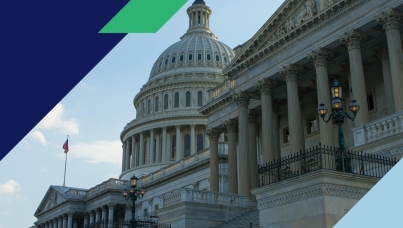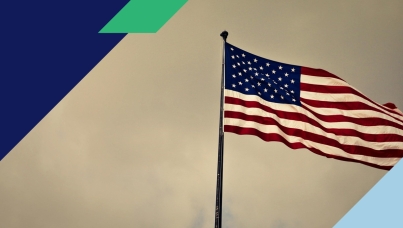Trust in states and the federal government is slipping during lockdown
What you need to know:
- As the nation considers relaxing restrictions, trust in both state and federal governments is slipping.
- Decline in trust at the state level is most pronounced in states where governors are rushing to reopen for business, like Florida, Georgia and Texas.
- Most Americans still believe it is risky to end social distancing before the virus is contained and would be hesitant to resume their normal lives even after restrictions are lifted.
Deep Dive:
As the coronavirus-imposed national shut down wraps up its eighth week, trust in both federal and state government is falling. The current moment in American history is marked by hyper-partisanship and declining trust in institutions, trends that are only accelerating during the ongoing pandemic.
Early on in the crisis, the majority of Americans rallied around state governments, many of which preempted the federal government in rolling out stay-at-home orders to slow the spread of the virus. When Ipsos first began tracking this question in late March with Axios, 71% of Americans reported high levels of trust in states governments to look out for them. Fewer trusted the federal government to protect their interests, at 53% of all Americans.
But as the death toll rises and the economic fallout worsens, levels of trust are falling, with the steepest declines occurring in states rushing to relax restrictions, like Georgia, Florida, and Texas. Though the economic repercussions of the pandemic have been catastrophic, most Americans do not want to reopen the country for business until it is safe.
Trust in the federal government is at its lowest ebb yet, dropping 15 points from late March to early May, according to the Axios-Ipsos Coronavirus Index. Americans are divided along party lines on this measure, with 61% of Republicans saying that they trust the federal government, compared to just 25% of Democrats.
On the balance, state governments are faring somewhat better. Though trust in the states dropped by 9 points from late March, a majority of Americans still believe that state governments are looking out for their best interests.
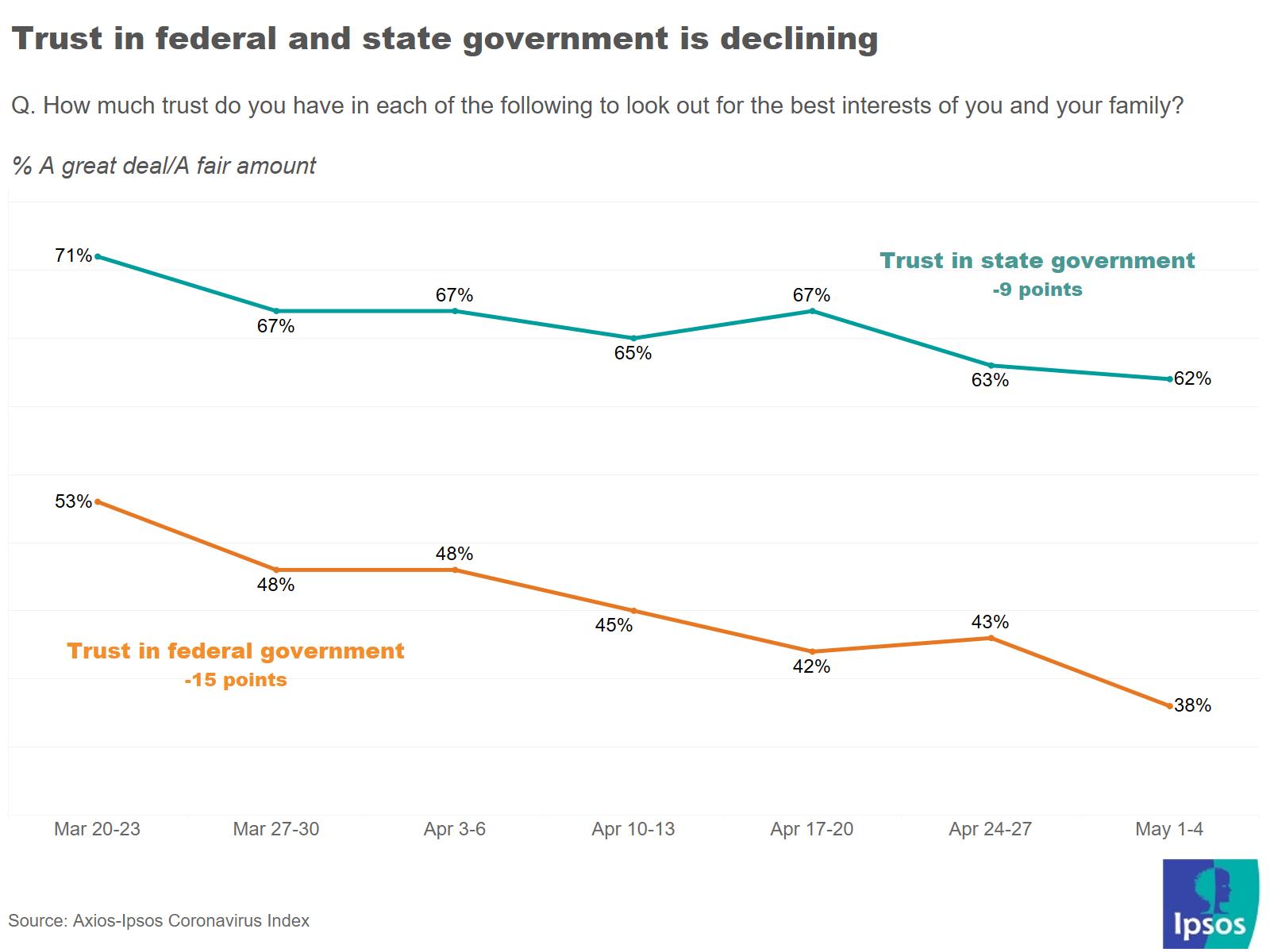
At the individual state level, the picture is more complex. Though trust remains at a constant high in states like New York, California and New Jersey – where the popularity of governors like Andrew Cuomo and Gavin Newsome has skyrocketed – it is tanking in other parts of the country.
Texas, Georgia and Florida, three southern states that are leading the way in reopening for business or were slow to close in the first place, saw a 17-point drop in trust from late March to May. Trust in the governments of Ohio, Pennsylvania and Michigan, which made headlines for small but vociferous protests against stay-at-home orders, also declined, though not as sharply.
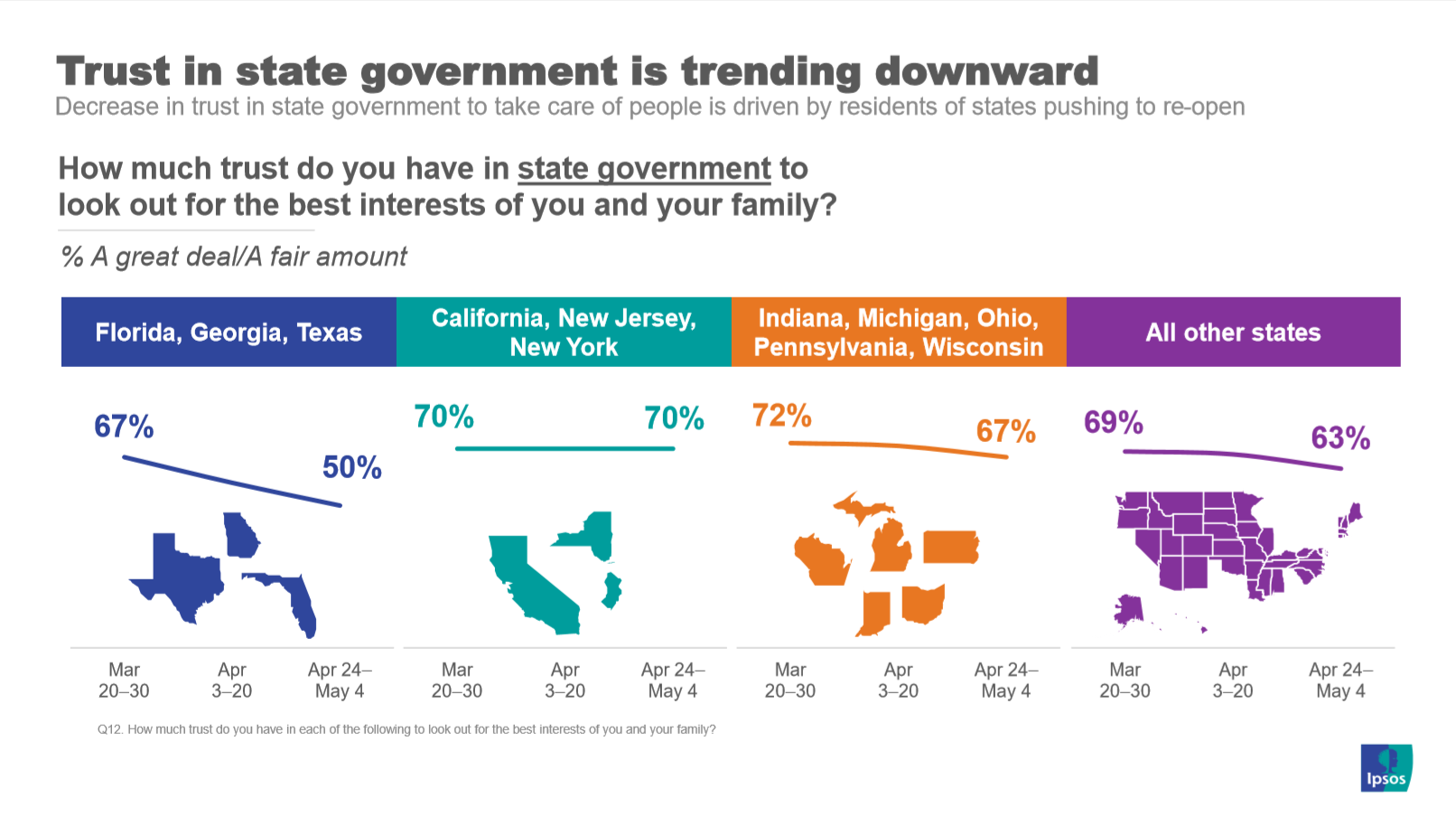
Most Americans are wary of easing restrictions too soon
Most Americans see the coronavirus as a threat and want to keep social distancing measures in place until COVID-19 is contained, but they are also very much aware of the economic repercussions of the virus. In an increasingly rare moment of bipartisan agreement, 88% of Democrats and Republicans alike say that they are worried about the U.S. economy collapsing during the pandemic, according to the Axios-Ipsos Coronavirus Index.
Still, when weighing this complex calculus – preserving jobs versus a better chance of survival for more people – most Americans come down on the side of saving lives. The majority of Americans believe that the nation should continue to shelter in place despite the risk to the economy until public health officials say it is safe to lift restrictions, according to Reuters/Ipsos polling. A growing number of Republicans, however, favor ending stay-at-home orders in order to get the economy going again.
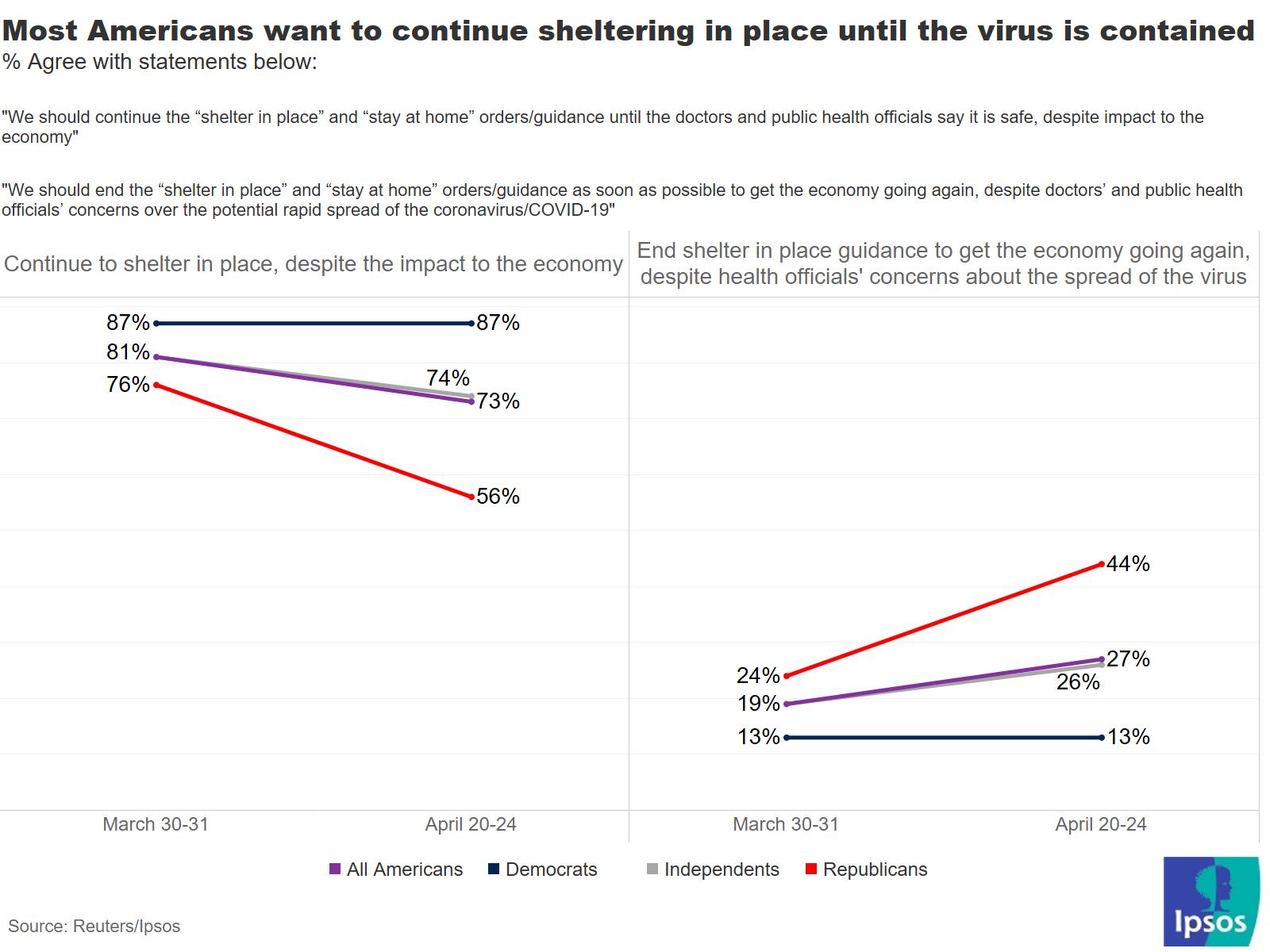
Similarly, an ABC News/Ipsos poll found that most Americans believe that easing restrictions too early and losing lives is a more severe threat to the country than waiting longer, even if it results in more lost jobs (72% and 27%, respectively). Here, the bipartisan split is also apparent: 92% of Democrats see lifting stay-at-home orders as the greatest threat to the country, compared to 53% of Republicans.
Even if restrictions were lifted, Americans would not be in a rush to return to their pre-coronavirus lives, according to ABC News/Ipsos polling. Instead, Americans’ first order of priority would be going back to work, followed by other activities like getting a haircut or going to church. Most would still be wary of resuming discretionary activities, like going to restaurants, traveling, or going to the movies.
Still, it is apparent that at least some Americans are open to picking up life where it left off. This might be informing the decision-making process of states that have begun to relax restrictions, particularly in red states. Even with this partial support, the decision to open up businesses that could serve to spread the virus further without the capacity in place to test and treat the virus is something of a Faustian bargain, both for the nation and the states in question.


